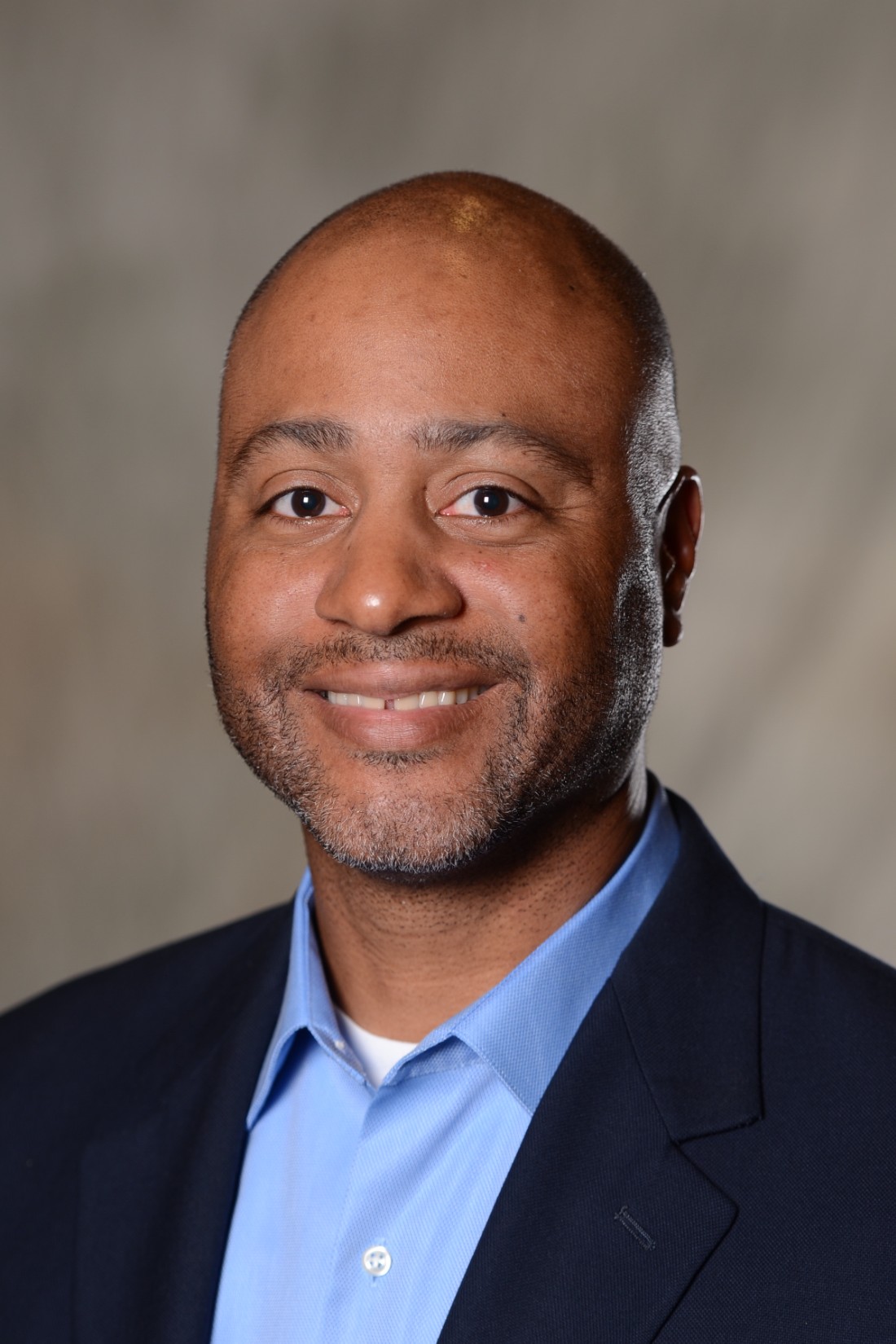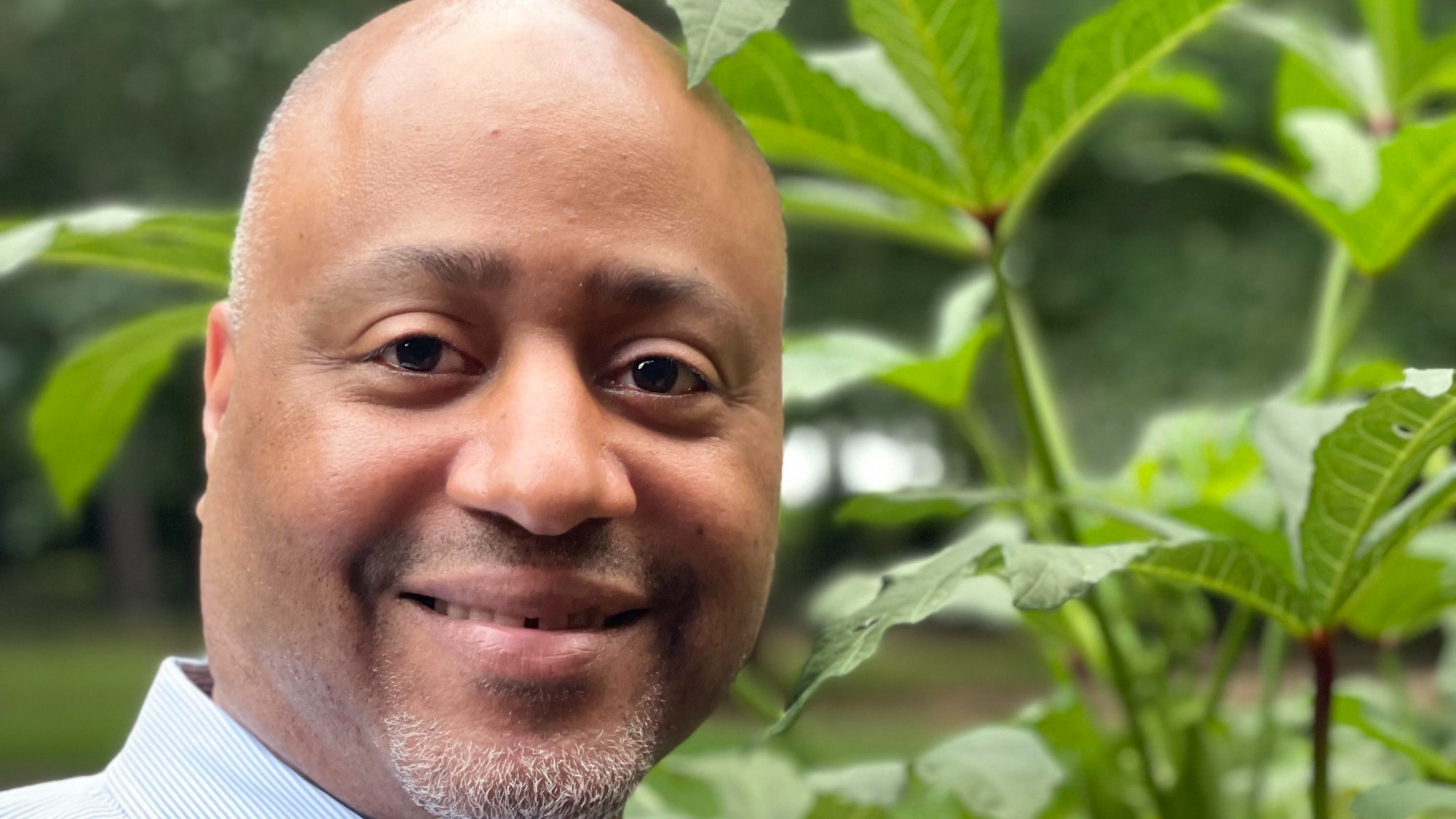Dr. Kennard Hood’s Henry County practice uplifts family and life balance

In the epidemic of physician burnout, the story of Dr. F. Kennard Hood’s work in primary care stands out for its many moments of sheer joy.
One day it’s the basket of fresh okra from a patient’s garden and the delicious quandary of how to prepare it for supper (probably a succotash). Another day it’s the elderly patient whose tears aren’t from pain, but because Hood is the first African American doctor the patient has ever met. Many times, his happiness is spending regular time in his garden that produces vegetables and valuable downtime.
“Everything just feels right here,” Hood said about his daily life in Henry County. “I have a love for plant life as well, and we’ve planted squash, tomatoes, cucumbers, eggplant, peppers. Last year we added corn for the first time.”
Putting down roots
Hood has practiced since 2009 at Emory at Eagle’s Landing Primary Care, located in Henry County, a suburb south of Atlanta Hartsfield-Jackson Airport, where three generations of his wife's family live within a 30-minute drive. He also volunteered at Hands of Hope Clinic, which provides charitable medical, dental, and mental health care to uninsured adult residents. Once a month, he works in an Atlanta clinic for former NFL players.
Henry County was semi-rural when Hood arrived in the late 1990s. In recent decades, he has seen Atlanta move nearer, and his patient population expand.
“We see average blue-collar folks for the most part, but it is becoming more and more diverse,” he said. “When I first started, it was pretty much your homogenous Southern town, with black and white people. Now we're getting many more Latin, and also quite a few Indian American families coming in. It's also diversifying in terms of religion and sexual orientation. This helps because as we physicians get older, our patients tend to get older then you lose patients. But it's nice here in Henry County because it's a fresh, new set of folks coming in.”
Their needs have made him a better physician.
“My patients may be second-or third-generation from Asia, South America, or Central America, so I’m learning more about culture and what makes them tick,” he said. “I ask them, ‘What is your belief system?’ because that also helps explain why they choose to take medicine or why they eat a certain way. That's a growth area for me.”
Relationships with Patients
Close relationships are so important to Hood that he resisted pressure in medical school to dump primary care for a more lucrative specialty. This is how he tells it:
“Basically I started my first year in medical school with an open mind, a clean slate as I did my studies and rotations, knowing there are several specialty areas that I could go into. In my rotations, I became attached to my patients no matter what the field was. I would always keep their name and phone number and call them a few months later and say, ‘I’m just curious to see how you turned out, how did it go with your family, and how did you do getting over that surgery?’ Developing that rapport and that relationship became one of my favorite things.
“I remember getting heavily criticized for doing that on the general surgery rotation. The chief resident thought it was ridiculous that I would take time out to call someone like that, but that's what gave me joy; I love just hearing their story. Now we call this continuity of care. It’s the part of medicine I fell in love with, and it made me feel like I was made to be a family doctor.”
At the time, Hood was not encouraged in his career choices by his teachers. “They discouraged primary care,” he recalled. Hood pushed back on this feedback. “There were professors that said primary care was a waste of my time, talent, and intellect. I felt strongly that this is what I want to do, because I didn't enjoy a specialty rotation and doing that every day, all day, for patients who never come back.”
Compassionate rapport matters
Hood came to Emory for college partly through the mentorship of now Emory Trustee Gregory J. Vaughn, also from South Carolina. While majoring in biology and religion, Hood also played forward on the Emory basketball team. He earned his undergraduate degrees in 1992, graduated from Emory School of Medicine in 1996 and completed his Emory family medicine residency in 1999.
After a decade in private practice, Hood wanted more independence. Emory’s expansion of primary care proved timely. “I actually started the practice by myself,” Hood said with pride. “On day one, it was me and my medical assistant.”
In this location, Hood can spend enough time with patients to establish a rapport, to understand their family systems and choices “without making them feel like I’m chewing them out. I want my patients to know that I know this is personal.”
He sees his larger purpose as “to do what I can for the people who I encounter to meet their physical and spiritual and mental needs.” Loneliness is a common problem, exacerbated by the pandemic, and many patients look forward to connecting to someone who cares.
Hood had an office visit with a Black man a decade older than him, and Hood had to step away to take an important call. He returned to find the patient crying. “This is the first time in my life that I've had a Black doctor,” Hood recalled him saying.
Another woman with diabetes shed tears after Hood examined her feet for signs of poor circulation or nerve damage. “You’re the first doctor to examine my feet,” she told him. “It may be a small thing to you, but it’s a big thing to me and I appreciate it.”
A natural fit
Two counties west is Fayette, where his wife Keisha (Carlton) Hood, a 1991 Emory College graduate, grew up. She is a licensed professional counselor and a marriage and family therapist. The Hoods have two adult children, and their daughter graduated with a doctor in physical therapy in 2022. Their son is currently a third-year student at the University of Georgia.
Despite the many population changes, Henry County still reminds Hood of his hometown of Greenville, SC.
“The way people here face everything is very similar to my roots,” said Hood. “When I tried to match my wife's desire to be in metro Atlanta to me wanting to be in a community like where I grew up, this was just a natural fit.”
Story by Michelle Hiskey
Photos courtesy of Dr. Kennard Hood


